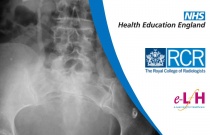Management of Physical Deterioration in Palliative Care
Aruni Wijeratne
As illness progresses in the last year of life, physical function inevitably diminishes. This session provides a framework for the management of physical deterioration of patients at the end of life. This session was reviewed by Aruni Wijeratne and Christina Faull and last updated in December 2014.
Imaging Bladder Function
Uday Patel
0.50 Hours
In clinical practice, functional bladder disorders are much more common than structural disorders. However, the two are often related. This session presents an overview of normal and abnormal bladder function, and how this may be evaluated.
Imaging of an Incidental Adrenal Mass
Sheila Rankin and Rodney Reznek
0.25 Hours
Incidental non-functioning adrenal adenomas are seen on computed tomography (CT) and must be differentiated from more significant pathology.
Imaging of Acute Renal Failure
Giles Rottenberg and Monica Bhumbra
This session explains the causes of acute renal failure (ARF) and the role of imaging in managing patients presenting with renal failure.
How to do a Neonatal Contrast Enema
Alan Sprigg
0.50 Hours
In this session you will be shown the basic technique for a neonatal contrast enema, including preparation, contrast selection and technical issues.
Embryology of the Urinary Tract
Ima Moorthy
0.50 Hours
This session describes the normal development of the embryonic urinary tract and goes on to examine some of the developmental abnormalities that may occur.
Imaging of the Child with Epilepsy
Lesley MacPherson
0.75 Hours
This session discusses the key features of imaging a child with epilepsy, including the indications for emergency and non-emergency imaging and the roles of computed tomography (CT) and magnetic resonance imaging (MRI). The relevant cerebral anatomy will be demonstrated and the radiological features of the more common causative....
Grey Matter Disorders Including Abnormalities of the Basal Ganglia
Neil Stoodley
0.50 Hours
This session will discuss the development and anatomy of the cerebral cortex and deep grey matter nuclei and the common pathologies that may affect the grey matter.
Infratentorial Brain Tumours
Lesley MacPherson
0.75 Hours
This session will discuss the background and general principles in the imaging of children with paediatric brain tumours and review the commonest infratentorial paediatric brain tumours in children.
Neurovascular Ultrasound
Joanna Wardlaw
0.50 Hours
This session will explain how to carry out neurovascular (carotid and vertebral) ultrasound, including normal features to look for and a few tricks for identifying arteries.
Basic Pathology and Clinical Aspects
Bob Bury
0.50 Hours
This session looks at the clinical application of pulmonary scintigraphy for the investigation of pulmonary emboli, and includes patient triage and basics of this technique.
Image Formation with a Gamma Camera
Wil Evans
0.50 Hours
This session gives a detailed description of the construction and function of a digital gamma camera for planar radionuclide imaging.
Heat Removal (Thermal Loading)
Chris Taylor
0.50 Hours
This session covers the problems of heat build up in x-ray tubes, the restrictions they impose on x-ray generation, and the methods used to solve these problems.
Image Quality in Radiography
Chris Taylor
0.75 Hours
This session covers the quantities used to describe image quality and discusses them in the context of radiography. Both film screen systems and digital receptors are considered.
Interscalene Block - Anesthesiology
David Pappin
0.50 Hours
This session examines the interscalene block including its indications, contraindications and complications, and explores the anatomy relevant to this regional anaesthetic technique.
Infraclavicular Block - Anesthesiology
Robert Tonko
0.50 Hours
This session describes ultrasound-guided infraclavicular block including indications, contraindications, complications and anatomy.
Clinical Signs During Inhalational Induction - Anesthesiology
Rhona Dornan
0.50 Hours
This session will describe the classical stages of anaesthesia as seen in un-premedicated patients breathing ether as the sole anaesthetic agent. The importance of recognizing these stages as a leap forward for patient safety will be illustrated in its historical context. The relevance of ether anaesthesia to modern inhalational....
Intravenous Maintenance of Anaesthesia
Drew Smith
This module describes the methods of maintaining general anaesthesia with intravenous agents alone, as opposed to inhalational agents, and the underlying pharmacological principles of intravenous maintenance of anaesthesia.
Management of Intra-Operative Hypotension and Hypertension
Seema Quasim
This session describes the causes and management of two common intra-operative critical incidents; hypotension and hypertension.
Management of Hypo- or Hypertension - Anesthesiology
Rachel Vickers
0.50 Hours
This session will provide a structured approach to the management of a patient in the recovery room who has low (hypotension) or high (hypertension) blood pressure. It will cover these separately, with sections on definitions, causes and management.
Hepatic and Gastrointestinal Function - Anesthesiology
Andris Ievins
0.50 Hours
This session describes the age-related changes in metabolism, hepatic function, protein synthesis and pharmacokinetics. Gastrointestinal function and related clinical topics will also be discussed.
Introduction to the Audiometer
Angela Mack
0.50 Hours
This session will introduce you to the different types of audiometers, providing an insight into the function of each control.
Image Interpretation - Gynaecological Ultrasound: Children and Adolescents
Anne Marie Coady
0.50 Hours
This session will consider the sonographic appearance of the prepubertal female pelvis. It will include indications for examination, normal anatomy and common pathology. Tips on phraseology will be offered.
Image Interpretation - Gynaecological Ultrasound: Abnormal Early Pregnancy
Hazel Edwards
0.50 Hours
This session will discuss the ultrasound appearances of common early pregnancy complications including subchorionic haemorrhage, miscarriage, pregnancy of unknown location, ectopic pregnancy and gestational trophoblastic disease.
Image Interpretation - Abdominal Ultrasound: The Liver - Session 1
Jane Smith
0.50 Hours
This session outlines the ultrasound appearances of the liver and the technique used to achieve an optimum examination. It also considers normal anatomy.
























